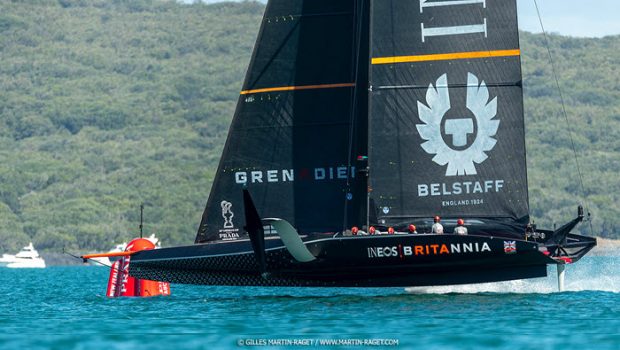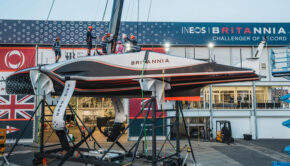Sport needs to avoid polluting sponsors
Published on March 22nd, 2021
Following his Olympic career and contributing member of the winning 2013 America’s Cup team, Ben Ainslie launched his own team to win the trophy in 2017 for Great Britain. Branded as Land Rover BAR, the team sought support with a sustainability message.
Their UK base was rooted in sustainable architecture, they provided STEM education, had a youth academy, but more than anything, they had a wide-ranging environmental partnership with team sponsor 11th Hour Racing, an organization which advances solutions and practices that protect and restore the health of our ocean
As Jeremy Pochman, president of 11th Hour Racing, said in 2017, “We challenge and change practices in technology, procurement, energy production and use, efficiency, economy, community and legacy. We collaborate closely with Land Rover BAR to implement solutions to overcome or mitigate environmental issues, and promote a lasting legacy — and we believe this is happily also fundamental to creating the strongest team possible.”
But when Land Rover BAR struggled in 2017, Ainslie shifted gears. British billionaire Jim Ratcliffe took over sole sponsorship in a deal backed by his huge petrochemical business INEOS. As one of the world’s largest manufacturing companies, it was reported at the time to be a $152 million USD (£110 million) war chest.
Ainslie was now well funded for his next campaign, but it was a 180° turn from his green message. While this effort also fell short in 2021, the INEOS partnership will continue for his next campaign, joining more than 250 sponsor agreements worldwide between sports groups and high carbon industries.
However, in a BBC story, sports teams and competitions are being urged to drop sponsorship deals from companies that promote “high carbon lifestyles, products, and services”. A new report called “Sweat Not Oil” says the deals damage progress in efforts to tackle global warming.
“Sport floats on a sea of sponsorship deals with the major polluters,” report co-author Andrew Simms said. “It makes the crisis worse by normalizing high-carbon, polluting lifestyles, and reducing the pressure for climate action.”
The report is published by the New Weather Institute think tank, climate charity Possible and the Rapid Transition Alliance.
Thirteen sports were examined, with football found to have the most deals – 57 in total worldwide – from kit sponsors to stadium naming rights being sold to oil and gas companies, as well as airlines and motoring firms.
Their research will be presented to governing bodies as well as the Department of Culture, Media, and Sport.
Etienne Stott, London 2012 Olympic champion canoeist said: “Sport has a unique power to connect and inspire people. I would like to see it use its voice to promote the idea of care and stewardship of our planetary resources.”
The study also highlights the public health effects of the pollution which comes from burning fossil fuels and compares that with tobacco, which was banned from sports advertising in the UK in 2003.
“Major polluters have become the ‘new tobacco’ of sports sponsorship,” Simms added. “An estimated 8.7 million people are killed by air pollution from the burning of fossil fuels each year, more than the 8.2 million killed by smoking.
“Tobacco advertising was ended to protect people’s health. Now it’s time for sport to show end sponsorship from major polluters for the health of people and the planet.”
The report highlights global chemical company INEOS and its sponsorship of the cycling team INEOS Grenadiers and Ben Ainslie’s America’s Cup sailing team INEOS Team UK.
A spokesperson for INEOS said: “INEOS’ leadership on sustainability has been recognized by Ecovadis, a world renowned sustainability ratings agency. Audits of INEOS on environment, ethics, labor and human rights, and sustainable procurement placed it in the top 4% of 65,000 companies rated.
“And INEOS was especially recognized for its environmental performance, reflecting its commitment to carbon emission reduction targets and to recycling and the circular economy. Our relationship with our sports teams is more than sponsorship. They are a part of our company.”









 We’ll keep your information safe.
We’ll keep your information safe.